Saltivka smells of linden and roses. If you’ve heard of Saltivka, you might think this sentence is absurd. Saltivka—a sprawling housing estate on the edge of Kharkiv—was once home to half a million people. That was before February 2022, before war made it one of the first places to burn. Northern Saltivka, just kilometers from the Russian border, became synonymous with devastation. I remember sobbing in those early days, watching images of bombed buildings and bloodied playgrounds loop across every screen.
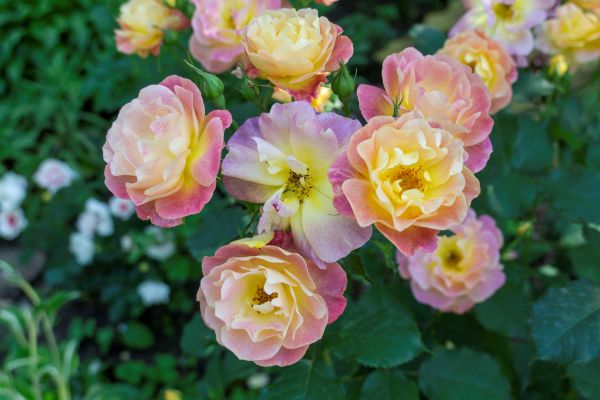
But today, in June 2025, Saltivka smells of linden and roses.
I have stopped crying at ruins. After three years of traveling across Ukraine, my senses have dulled to destruction. But when I arrived in Saltivka and inhaled the scent of linden blossoms, something shifted. The air was thick with molten sweetness. I met Natalia Mykhalchenko, a writer from Donetsk who now calls this neighborhood home. She led me through the streets: shattered schools, boarded-up buildings, rocket-scored walls. And amid this, the unmistakable scent of roses.
I turned a corner and saw them: rose bushes, freshly planted, blooming in every color. Baskets of petunias and geraniums hung from macramé pot-holders, hand-knotted with care. A Japanese rock garden nestled in one corner.
That’s when I began to cry—not at the ruins, but at the sight of a macramé pot-holder swaying in the breeze.
Memory Is Shaped by Scent
We often think of memory as a collection of images. But memory is also sensory. It’s the smell of linden trees in early summer, the sticky sweetness of apricots at a market, the chalky scent of dust after shelling. Our bodies remember long before our minds do.
When I smell roses in a place like Saltivka, I don’t just smell a flower. I smell a refusal to forget the city’s former self. I smell continuity. In a broken world, scent weaves something whole and it reminds me that I’m alive, that the city is still vibrant and functioning.
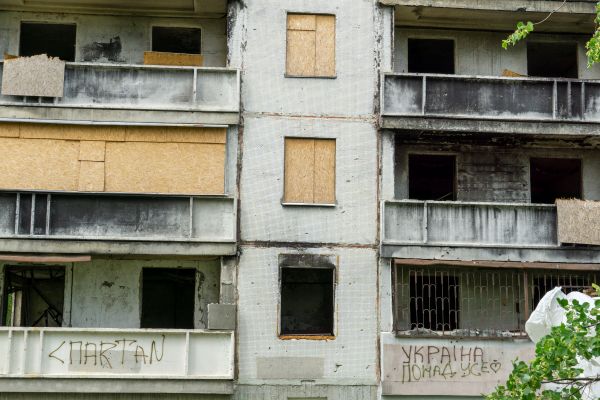
War Destroys Atmospheres
Wars don’t just destroy buildings—they destroy atmospheres. They flatten moods, erase scents, still the rhythms of ordinary life. In Saltivka, the hum of daily life was once carried by trolleybuses and birdsong and the rustle of poplars. Now, there’s silence. Or the metallic whine of reconstruction.
In 2022, when rescue workers searched Saltivka’s ruins, they choked on the stench of rotting bodies trapped beneath the rubble. That smell clung to the streets for days—maybe weeks—becoming part of Saltivka’s atmosphere and part of its trauma.
Now, the scent of linden and lavender replaces that air of death, but it doesn’t erase it. The flowers don’t deny the past. They grow over it, around it. They insist on remembering differently.
But gardens shift that atmosphere. They bring back texture, fragrance and the hum of bees. These are not luxuries. They are the beginning of remembering how to live.
In Ukrainian, a missile strike is called приліт—prylet—literally, an arrival by air. Once, an arrival meant something joyful. A guest. A plane bringing family home. But war twists language. Since no passenger planes fly in the skies of Ukraine anymore, an arrival now means an explosion. And then horror.
Even our words have changed their scent.
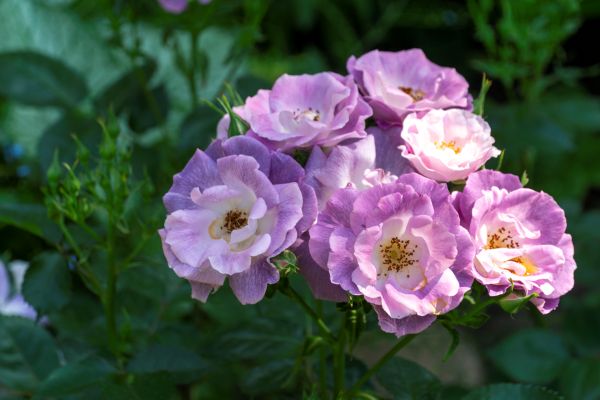
Plants in Survival Stories
There’s a reason flowers keep appearing in stories of survival. Prisoners in gulags smuggled seeds. Refugees plant herbs outside their tents. Soldiers fighting in the trenches of WWI left vivid reminiscences about nature. In Saltivka, grandmothers prune roses under missile-scarred facades.
These small acts are not sentimental. They are structured rituals of survival. They remind us that even here, amid debris, something can bloom. Roses in Saltivka might smell like Provence, but it means something entirely different: it means someone chose not to surrender.
Gardens as Sensory Archives
In Saltivka, the flowers are more than ornamental. They are memory projects. Emotional archives. Smelling that roses, I understood: these gardens are keeping something alive. They’re not just cataloguing what was lost, but asserting what must be remembered. It’s a language of scent, a memory stored not in history books, but in blossoms. Roses remind us not only that Saltivka was once full of life—but that life is still here.
How Do You Cultivate a Garden on the Frontlines?
In The Rooster House, I quoted Voltaire: Il faut cultiver notre jardin—we must cultivate our garden. At the time, it felt like an existential koan. But in Saltivka, it’s not a metaphor. You cultivate a garden here with broken fingers, with your body still shaking from air raids. You cultivate it with cuttings from your neighbor, seeds saved from your former life.
You cultivate a garden on the frontlines because beauty is identity. Because scent is memory. Because roses bloom even in places the world has written off.

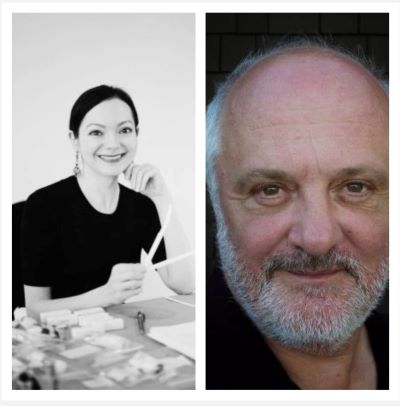
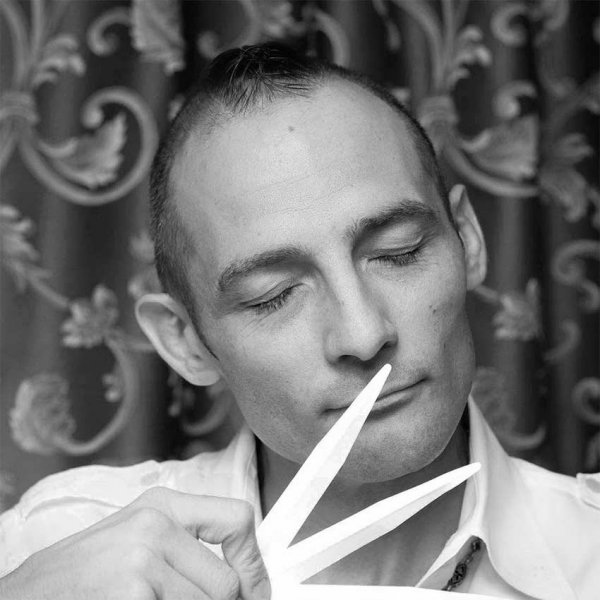
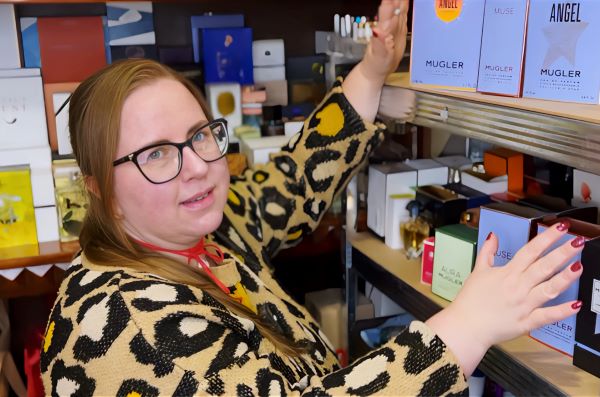
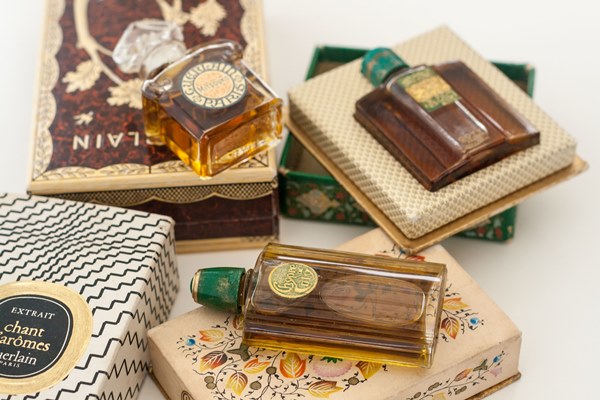











13 Comments
Ann: Thank you for this powerful piece. Kharkiv holds so much pain and resilience in its streets. Your words honor both—the destruction and the dignity. June 16, 2025 at 8:36am
Donna: 🙏🏻🙏🏻🙏🏻 June 16, 2025 at 9:14am
Karen A: What a beautiful beautiful essay. So much to think about. Exception writing, Victoria. Thank you.. June 16, 2025 at 9:19am
Bel: Thank you for this beautiful piece. I have followed your writing for many years and you always manage to find beauty in everything. Respect. June 16, 2025 at 9:26am
Hamamelis: Thank you dear Victoria for this beautiful piece of writing, full of courage, hope and dignity. I smell the roses and linden of Saltivka through my computer screen! And as so often I think of your great grandmother getting on with planting potatoes…The Ukrainian people surely have an indomitable spirit. June 16, 2025 at 9:35am
Kimberly Rosenfield: Thank you for this profound piece. Fragrance is not a luxury just for the living… June 16, 2025 at 10:14am
Elizabeth: Thank you, Victoria, for such a profound and moving piece. It’s tempting amid all the tragedy and craziness in our world these days, to hide away and close the door to feelings, to stay numb. Your essay and your many posts on Instagram remind us of the strength and beauty of humanity and allow an opening for the tears to flow. June 16, 2025 at 11:25am
Krista: This was beautiful; thank you for writing. June 16, 2025 at 11:33am
Cynthia M: Very evocative and beautiful writing! I’ve read your essays for many years; my first comment. June 16, 2025 at 12:12pm
Geraldine Ethen: Victoria, you incorporate both grief and joy in your writing about war-torn Ukraine. How important that beauty return to the earth. How important that our sense of smell can again detect richness of scent. May the healing continue. June 16, 2025 at 12:42pm
Toni: Thank you for sharing this beautiful story.
The scent is truly the Silver Lining. June 16, 2025 at 1:02pm
Aurora: Your evocation of Saltivka roses does indeed remind of the remembrance poppies of the Commonwealth and the cornflowers of France.
Such a moving article, written from the heart. June 16, 2025 at 1:35pm
rickyrebarco: Such a beautiful essay about the importance of hope and finding joy even in the darkest of times. Thank you for sharing all the beauty of Ukraine with your readers. June 16, 2025 at 2:46pm